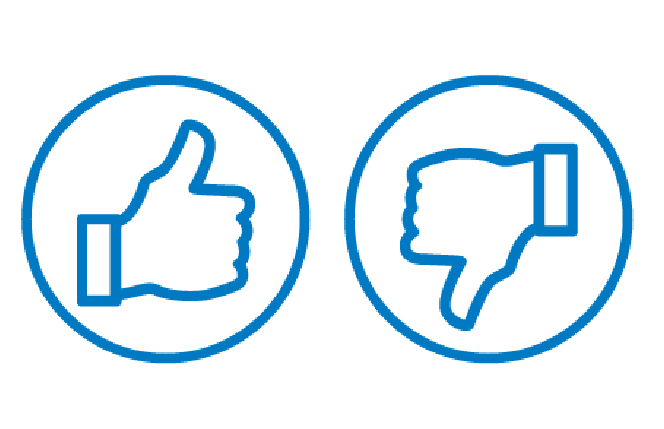What Is An HSA And How Does It Work?
Oct 17,2024
Read Time 4 Minutes

When it’s time to choose a health plan, some employers offer high-deductible health plans (HDHPs) that come with a health savings account (HSA). An HSA is a great way to put aside money for healthcare you or your family may need soon. Better yet, it can help you build a nest egg for healthcare needs down the road.
Here’s information about how this type of account works and how you can make the most of your HSA.
What An HSA Is
Think of an HSA as a personal savings account to help you pay healthcare costs. It lets you set aside money from your paycheck before taxes and then use the funds to pay for qualified medical expenses.
Taking money out of your paycheck before taxes lowers your taxable income. Any unused funds in an HSA roll over to the next year, and once your balance reaches a certain amount, you can invest the funds. Read on to find out how.
What Your HSA Covers
Money in your HSA can be used for hundreds of qualified medical expenses, including:
- Out-of-pocket costs, such as copays and coinsurance (your share of the costs).
- Prescriptions and many over-the-counter medicines.
- Dental and orthodontia.
- Eyeglasses and vision care.
- Chiropractic care and acupuncture.
- Lab tests and X-rays.
- Feminine hygiene products.
- First-aid supplies.
How To Make The Most Of Your HSA
Contributing money yourself is just one of the ways to grow your HSA. Your employer may also contribute funds to the account. The Internal Revenue Service (IRS) sets HSA contribution limits each year, which include the contributions from your employer. Use our HSA Contribution Limits Calculator to check how much you can put in your HSA this year. If you’re over age 55, you can make a “catch-up” contribution of an additional $1,000 per year until you enroll in Medicare.
If your HSA balance rises above $1,000, you can also grow your money by investing anything over that amount in a mutual fund. Your earnings will grow tax-free, which helps build healthcare savings for future needs — even after you retire. But if you need the money sooner, you can access the funds at any time and you won’t pay taxes on the money earned if you spend it on eligible medical expenses.
The Triple Tax Benefits Of An HSA
An HSA has triple tax benefits that help you stretch your money further. You’ll realize the tax benefits on:
- Contributions: You don’t have to pay taxes on your contributions to your HSA from your paycheck. This also reduces your taxable income. Use our tax savings calculator to see how much your HSA contributions could save you on taxes.
- Withdrawals: According to the IRS, the money you contribute to your HSA stays tax-free as long as you spend it on qualified medical expenses.
- Investments: If your HSA includes the option to invest the funds in your account, the earnings are also tax-free.
An HSA Versus FSA
HSAs and Flexible Spending Accounts (FSAs) are similar in that they both help you save for qualified medical expenses. But there are differences.
HSAs and FSAs vary in four significant ways:
- Expiration: An HSA account never expires. The money you put in is always yours, even if you switch health plans, change jobs, or retire. With an FSA, you cannot take your funds with you.
- Roll-over funds: Any money left in your HSA account at the end of the year rolls over to the next. That’s not the case with FSAs. You typically lose whatever is left in your account at year’s end.
- Investing: Once your HSA balance reaches $1,000, you can choose to invest it and grow your money even more. Investing is not an option with an FSA.
- Health plan: With an HSA, you must enroll in a high-deductible health plan. With an FSA, you can choose any type of health plan.
How To Use And Manage Your Funds
Most HSA plans, including those from Anthem, come with a debit card that links to your HSA account. The card is the most convenient way to access your money because it lets you pay for eligible healthcare expenses at the doctor’s office or retail checkout. If you prefer, you can also pay out of pocket and file a claim for reimbursement or simply let your HSA balance grow tax-free.
If you have an Anthem HSA, you can check your HSA using the SydneySM Health app or anthem.com. From there, you can manage your contributions and reimbursements, explore investment options, and even pay medical bills directly from your account.
Having an HSA can help you meet your medical needs today and down the road. Pre-tax contributions, tax-free distributions, and the ability to roll over unused funds make it a strong savings option. And knowing that it’s yours during job transitions or retirement should give you confidence and peace of mind.
Was this information helpful?
Sources:
Centers for Medicare & Medicaid Services: What’s a Health Savings Account? (August 2023): cms.gov.
Healthcare.gov: Health Savings Account (HSA) (accessed June 25, 2024): healthcare.gov.
Internal Revenue Service: Publication 969 (2023), Health Savings Accounts and Other Tax-Favored Health Plans (February 8, 2024): irs.gov.
1070449MUMENABS 05/24
